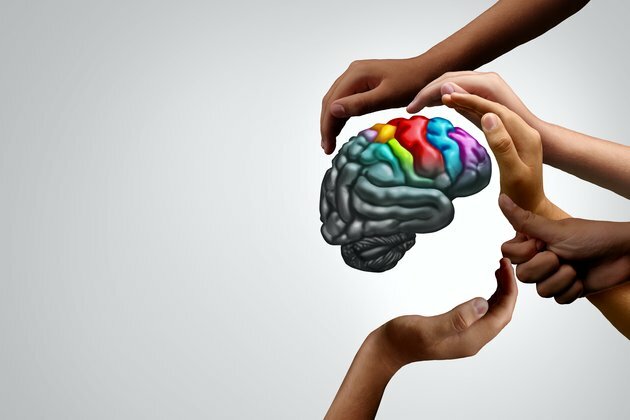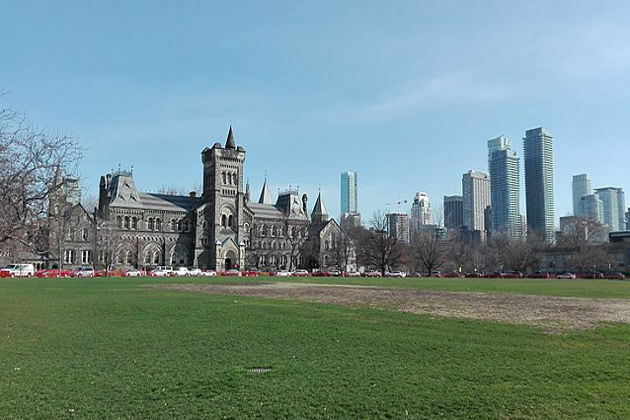How communities can fight the stigma that isolates people with dementia
The Conversation
09 May 2021, 16:09 GMT+10

Keeping people with dementia separated and secured is a common practice, based on the reasonable idea of safety first for the vulnerable. During this pandemic, however, contact with those in care homes, many of whom have dementia, was cut off at great cost to residents' mental and physical health.
Isolation and segregation create and reinforce another kind of barrier to those with dementia: that of stigma, which can rob people of quality of life, personal agency and the dignity of risk the rest of the population expects as a birthright.
Research shows that experiencing stigma - defined as a mark of disgrace and humiliation - adds to feelings of social isolation, depression and abandonment among those with dementia. This stigma exists worldwide, and trying to educate people at remove from those with dementia has not proved effective at reducing it.
One approach that might help diminish stigma is to build communities that are more welcoming and accepting to people with dementia.
Segregation is not the answer
The shame and fear associated with this stigma is so stubborn that people experiencing dementia still act on it, to their own detriment. They wait too long to be diagnosed, losing valuable time, treatment options and social support. Once labelled, they find that old friends, people in their community and even family members drift away. Caregivers also become more isolated.
Segregation for the sake of safety is not the answer to treating people with dementia - now numbering 50 million worldwide - as fully human.
During my years as a certified therapeutic recreation specialist in North American care homes, I saw how segregation led to stigma and blocked help for people with dementia. This is why now, as a professor in therapeutic recreation, I am engaging in research that focuses on a growing "dementia-friendly" movement.
This movement seeks to develop support systems for people with memory loss, recognizing them as equals, celebrating their contributions and enabling them to live with purpose inside welcoming communities.
I teach my students that personal relationships are at the core of any therapy that aims to help individuals thrive as they age. To that end, I am exploring the possibilities for contact theory, a promising, practical approach to combatting prejudice, to see if it can be applied to the stigma of dementia.
Contact theory posits that personal contact enables and supports relationships between majority and minority group members, and is better at reducing stigma than interventions that focus on education. Researchers have found that developing such relationships can reduce prejudice based on mental illness, race, gender and age.
The ultimate goal, if contact theory works as it has elsewhere, is to extend the concept of age-friendly societies, as described by the World Health Organization (WHO), to include dementia-friendly societies.
'Dementia-friendly' communities
The WHO defines an age-friendly city as one that "encourages active aging by optimizing opportunities for health, participation and security in order to enhance quality of life as people age." However, a specific call to address stigma around aging and dementia - a double-whammy of discrimination - is not explicit in the WHO's approach.
Around the world, the WHO promotes and evaluates such things as walking programs, accessible transit and recreation facilities, housing options, health services and many senior-friendly activities to ease the potential hardships of aging and to promote inclusion. Access to these kinds of services should not disappear when memory does.
A dementia-friendly community would adapt physical and social aspects of an environment to ensure well-being and continuity of life for everyone. This would explicitly address stigma within the WHO's current framework. Related activities could help move communities worldwide from segregation to tolerance to true inclusion of all people as we age.
This is where the tenets of contact theory may prove beneficial. Recent initiatives show that finding ways to bring people with and without dementia together in support of the same goal can counteract the stigma of dementia. This type of activity helps move the "dementia friendly" concept from rhetoric to reality.
Examples include:
- University students living in seniors' housing and spending time each week with their older neighbours in exchange for rent
- Choirs that bring people with and without dementia together in song
- Intergenerational programs that enable school-aged children to develop relationships with long-term care residents
These initiatives result in people with dementia feeling included, valued and respected, and the creation of meaningful relationships for all.
Contact theory is not a perfect solution, and widening the world of people with dementia is not risk-free. For example, there is a risk of people with dementia getting lost or going missing.
Despite these limitations, there is reason to feel optimistic that aging-friendly programs can be applied to dementia. I believe that if more people without memory loss interact and create friendships with those who have it, stigma will decrease. Adopting attitudes of inclusion based on personal experiences could result in friendlier, more equitable communities.
People with dementia cannot help forgetting. So it is up to us to remember that they are important members of society who deserve lives as connected and meaningful as our own.
Author: Sienna Caspar - Associate Professor, Faculty of Health Sciences, University of Lethbridge 
 Share
Share
 Tweet
Tweet
 Share
Share
 Flip
Flip
 Email
Email
Watch latest videos
Subscribe and Follow
Get a daily dose of Argentina Star news through our daily email, its complimentary and keeps you fully up to date with world and business news as well.
News RELEASES
Publish news of your business, community or sports group, personnel appointments, major event and more by submitting a news release to Argentina Star.
More InformationInternational
SectionNative leaders, activists oppose detention site on Florida wetlands
EVERGLADES, Florida: Over the weekend, a diverse coalition of environmental activists, Native American leaders, and residents gathered...
Beijing crowds cheer AI-powered robots over real soccer players
BEIJING, China: China's national soccer team may struggle to stir excitement, but its humanoid robots are drawing cheers — and not...
COVID-19 source still unknown, says WHO panel
]LONDON, U.K.: A World Health Organization (WHO) expert group investigating the origins of the COVID-19 pandemic released its final...
Fox faces $787 million lawsuit from Newsom over Trump phone call
DOVER, Delaware: California Governor Gavin Newsom has taken legal aim at Fox News, accusing the network of deliberately distorting...
DeepSeek faces app store ban in Germany over data transfer fears
FRANKFURT, Germany: Germany has become the latest country to challenge Chinese AI firm DeepSeek over its data practices, as pressure...
Canadian option offered to Harvard graduates facing US visa issues
TORONTO, Canada: Harvard University and the University of Toronto have created a backup plan to ensure Harvard graduate students continue...
Business
SectionTech stocks slide, industrials surge on Wall Street
NEW YORK, New York - Global stock indices closed with divergent performances on Tuesday, as investors weighed corporate earnings, central...
Canada-US trade talks resume after Carney rescinds tech tax
TORONTO, Canada: Canadian Prime Minister Mark Carney announced late on June 29 that trade negotiations with the U.S. have recommenced...
Lululemon accuses Costco of selling knockoff apparel
Vancouver, Canada: A high-stakes legal showdown is brewing in the world of athleisure. Lululemon, the Canadian brand known for its...
Shell rejects claim of early merger talks with BP
LONDON, U.K.: British oil giant Shell has denied reports that it is in talks to acquire rival oil company BP. The Wall Street Journal...
Wall Street extends rally, Standard and Poor's 500 hits new high
NEW YORK, New York - U.S. stock markets closed firmly in positive territory to start the week Monday, with the S&P 500 and Dow Jones...
Canadian tax on US tech giants dropped after Trump fury
WASHINGTON, D.C.: On Friday, President Donald Trump announced that he was halting trade discussions with Canada due to its decision...













